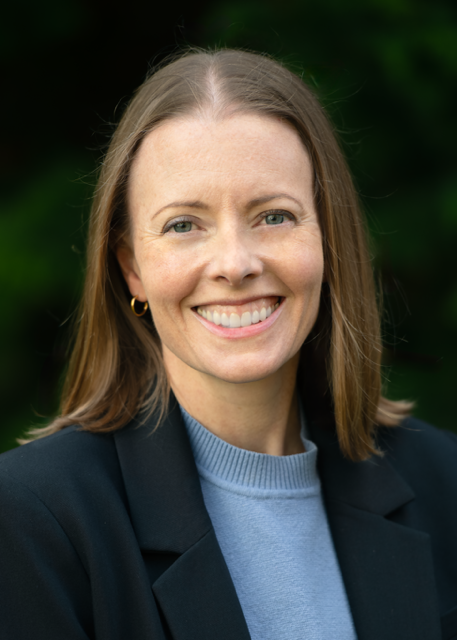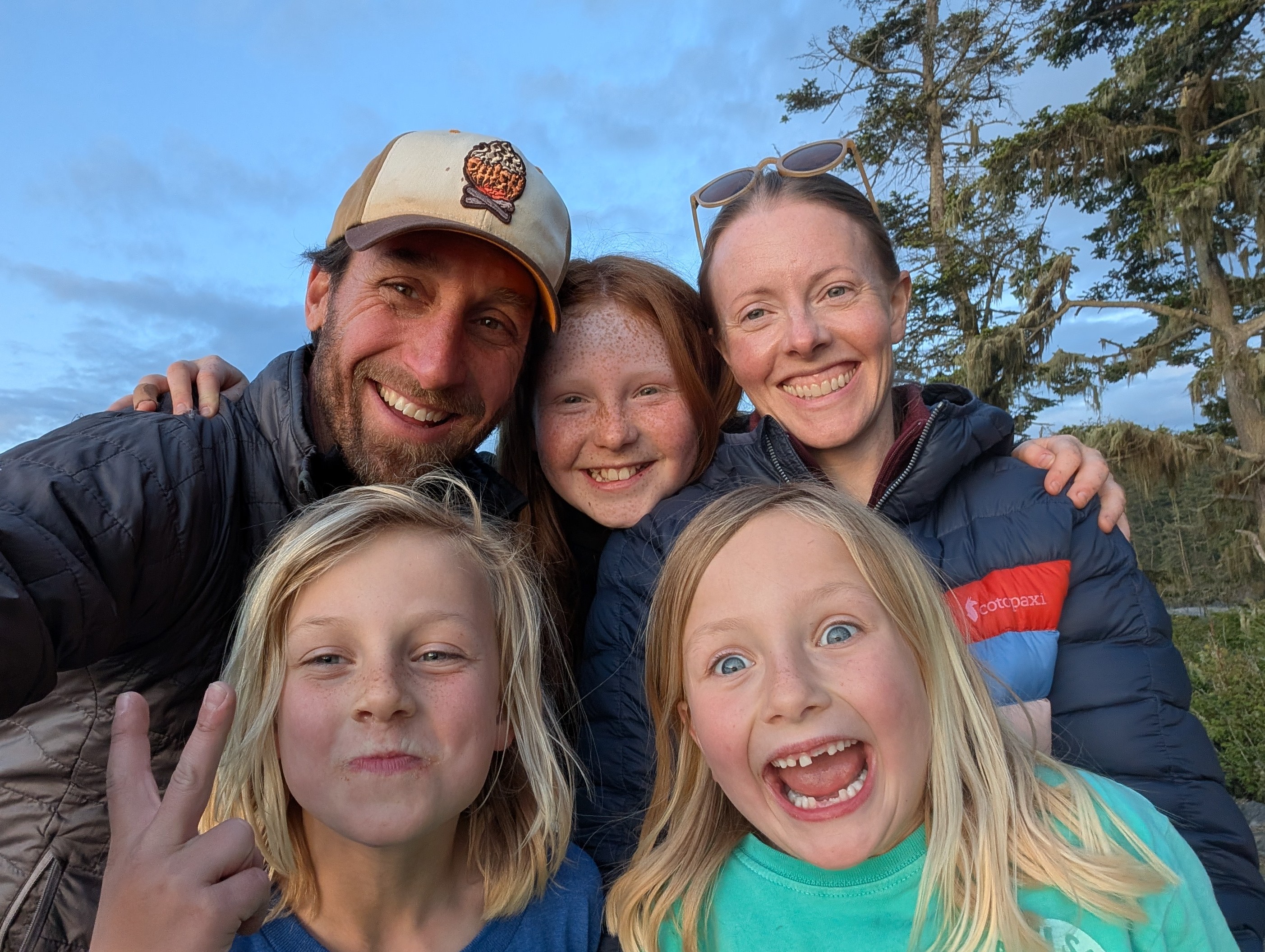

Faculty spotlight: Kate Weaver
Background
Dr. Kate Weaver grew up in Seattle, not far from the University of Washington campus, and graduated from Roosevelt High School. With both parents working as physicians, dinner conversations often centered on the challenging or interesting patients they had encountered during the day.
“My mom (Mary Watts) worked at Hall Health Center as an internist and primary care provider for over 30 years. My dad (William Watts) was a pulmonologist and intensivist and spent most of his career at Overlake,” Weaver said.
Their inspiration, combined with her own passion for science, helped guide her toward a career in medicine.
She attended Occidental College, earning her bachelor’s degree in biochemistry and then returned to Seattle for several years.
During this time, she worked at PATH, a Seattle-based global health nonprofit, and spent much of her free time skiing and enjoying the outdoors. She then moved east for medical school, earning her MD from George Washington University in Washington, DC.
Following medical school, Weaver completed her residency and chief residency at Stanford University, and then her endocrinology fellowship at the University of Washington. She has been a faculty member in the UW Division of Metabolism, Endocrinology and Nutrition since 2018 and is now an associate professor of clinical practice.
Outside of work, Weaver stays busy with her family.
“I am an avid…parent. 😊 I have three kids (11, 9, 6) and they keep us busy with soccer, hockey, skiing, baseball etc. My partner and I spend our evenings and weekends watching our kids play sports and enjoying the friends we make along the way.”

Clinical Passion
At Harborview Medical Center, she cares for people with diabetes and other endocrine disorders. At UW Medicine Diabetes Institute (UWMDI) her clinical focus lies in caring for young adults with diabetes. At both locations, she works with multidisciplinary teams to address all aspects of the disease that can impact health.
“Working with a multidisciplinary care team adds a richness to my clinic day and I witness repeatedly how it significantly enhances patient care. I feel so fortunate to work for an institution that understands the importance of this type of care.”
Looking AHEAD
At the encouragement of her mentor, Dr. Irl Hirsch, Weaver became co-director of the AHEAD Program in 2018. The program supports young adults with diabetes as they transition from a pediatric to an adult model of care.
“I am passionate about helping this group navigate the intersection of chronic disease and psychosocial challenges that often arise during this developmental stage.”
She is motivated by the opportunity to improve long-term outcomes for her patients at such a pivotal time in their lives.
“Emerging adulthood is a time of transition and transitions in medicine are always challenging and messy. By fostering autonomy and competence in emerging adults with diabetes, my team and I are setting them up for success for the rest of their lives,” she shared.
Looking ahead, Weaver is eager to expand her national presence as an expert in the care of young adults with diabetes and to share the successes of the AHEAD Program.
“We are running a successful program here in Seattle and I want to help other institutions implement a similar model, because the more patients we can help the better. My AHEAD colleagues at Seattle Children’s are getting ready to start a large clinical trial to study the effectiveness of the AHEAD model of care. Once we demonstrate effectiveness of our work, we will work with hospitals and payors to make our multidisciplinary model the standard of care for young adults with diabetes,” Weaver said.
Mentorship and Education
In addition to Dr. Hirsch, Weaver is grateful for several other faculty mentors within her division, including Drs. Abe DeSantis, Stephanie Page, Brent Wisse, and Savitha Subramanian.
“Stephanie and Savitha have shown me how to be an effective leader and administrator while maintaining my integrity as a physician,” she said. “Abe and Brent continue to be the people I always go to for help with a challenging case. It is honestly hard to single out specific people as mentors and guides - I am in awe of so many people I work with.”
Weaver is a dedicated mentor herself. She serves on the Department of Medicine Mentorship Subcommittee, which is launching a new group mentoring program for trainees and early-career faculty in the coming months.
She also enjoys working with learners directing MedSci 520 (CHB – Cancer, Hormones, and Blood) in the Foundations Phase of the medical school curriculum. She’s currently in the midst of teaching first-year medical students about endocrinology.
“In preparing for this course I love working with people of all different educational backgrounds from across the SoM. While teaching, I really love the deep dive I take with the students into basic physiology and how disruptions in those physiological processes (especially feedback loops) lead to disease in endocrinology,” she said.